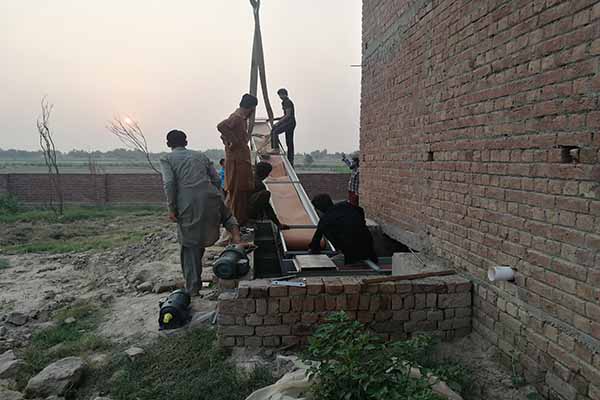What’s the Environmental Impact of Cage Systems?
The adoption of cage systems in the poultry industry has been a topic of considerable debate. As a professional supplier of chicken farming equipment, Livi Machinery aims to shed light on the environmental impact of these systems. Understanding this aspect is crucial for both experts and poultry farm owners to make informed decisions.
The Basics of Cage Systems
Cage systems are a common method of raising chickens, where birds are kept in individual cages within a larger pen. This method has several advantages, such as easy management and efficient use of space. However, it is essential to evaluate its environmental impact.
Positive Environmental Aspects
1. Reduced Land Use: Cage systems require less land compared to traditional free-range farming. This can lead to a reduction in deforestation and land degradation.
2. Lower Greenhouse Gas Emissions: The confined nature of cage systems can result in lower methane emissions compared to free-range farming.
3. Efficient Resource Utilization: By controlling the diet and environment, cage systems can help in reducing food waste and water usage.
Negative Environmental Aspects
1. Waste Management: The accumulation of chicken waste in confined spaces can lead to increased methane emissions and potential water pollution.
2. Animal Welfare Concerns: Some critics argue that cage systems can lead to poor animal welfare, which may indirectly affect the environment.
3. Energy Consumption: The operation of cage systems requires significant energy, which can contribute to greenhouse gas emissions.
Sustainable Cage Systems
To mitigate the negative environmental impact, it is essential to adopt sustainable practices. This includes:
1. Biogas Production: Utilizing chicken waste for biogas production can reduce methane emissions and provide renewable energy.
2. Recycling: Implementing recycling programs for water and other resources can further reduce the environmental footprint.
3. Animal Welfare: Ensuring proper animal welfare practices can lead to healthier chickens, which can indirectly benefit the environment.
Livi Machinery: Your Partner in Sustainable Chicken Farming
At Livi Machinery, we understand the importance of sustainable practices in chicken farming. Our range of high-quality equipment and services are designed to help you achieve your environmental goals while maintaining efficiency and profitability.
From automated feeding systems to waste management solutions, we have everything you need to run a sustainable poultry farm. Contact us today to learn more about how we can help you reduce the environmental impact of your cage systems.

